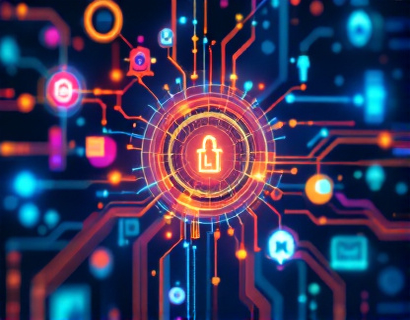Comprehensive Guide to Bitcoin and Cryptocurrency Resources
Introduction to Bitcoin and Cryptocurrency
Bitcoin, the first decentralized digital currency, has revolutionized the way we think about money and transactions. Since its inception in 2009, Bitcoin has paved the way for a new era of financial innovation, giving rise to a vast ecosystem of cryptocurrencies. For crypto enthusiasts and learners, navigating this complex landscape can be daunting, but with the right resources, it becomes manageable and even exciting.
This comprehensive guide serves as a one-stop-shop for all things Bitcoin and cryptocurrency. It covers essential topics such as wallets, exchanges, the latest news, and valuable resources, empowering users to navigate the digital currency world with confidence and expertise.
Understanding Bitcoin Wallets
A Bitcoin wallet is a crucial component for anyone looking to use, store, or transact with Bitcoin. A wallet is essentially a digital tool that stores your private keys and public addresses, allowing you to send and receive Bitcoin.
Types of Bitcoin Wallets
- **Software Wallets**: These are installed on your computer or mobile device. Examples include Bitcoin Core, Electrum, and Blockchain Wallet. Software wallets offer greater control and security but require users to manage their private keys.
- **Hardware Wallets**: These are physical devices that store your Bitcoin offline, providing enhanced security against hacking. Popular hardware wallets include Trezor and Ledger Nano S.
- **Paper Wallets**: A paper wallet consists of a piece of paper with two unique QR codes printed on it, one for the public address and another for the private key. This method is highly secure but less convenient.
- **Web Wallets**: Also known as online wallets, these are hosted by third-party services. Examples include Blockchain.info and Coinbase Wallet. While convenient, they are less secure as the private keys are stored online.
When choosing a wallet, consider factors such as security, ease of use, and compatibility with your devices. For beginners, a software wallet on a trusted device is often the best starting point.
Exploring Cryptocurrency Exchanges
Once you have a wallet, the next step is to acquire Bitcoin or other cryptocurrencies. Cryptocurrency exchanges are platforms where users can buy, sell, and trade digital assets. These exchanges act as intermediaries, facilitating transactions between buyers and sellers.
Types of Exchanges
- **Centralized Exchanges**: These are traditional exchange platforms like Coinbase, Binance, and Kraken. They offer a user-friendly interface and a wide range of cryptocurrencies but require users to trust the exchange with their funds.
- **Decentralized Exchanges (DEXs)**: DEXs like Uniswap and SushiSwap operate on blockchain technology, allowing peer-to-peer trading without a central authority. They offer enhanced security and privacy but can be more complex to use.
When selecting an exchange, consider factors such as security measures, available cryptocurrencies, trading fees, and customer support. It's also important to verify the exchange's reputation and compliance with regulatory requirements.
Staying Informed with Cryptocurrency News
The cryptocurrency space is dynamic and constantly evolving. Staying updated with the latest news, trends, and developments is crucial for making informed decisions. Here are some reliable sources to follow:
- **Crypto News Websites**: Websites like Cointelegraph, CoinDesk, and CryptoSlate provide in-depth articles, news, and analysis on the cryptocurrency market.
- **Social Media**: Platforms like Twitter and Telegram are hubs for real-time updates from industry leaders, developers, and communities. Following key figures and organizations can keep you in the loop.
- **Podcasts and YouTube Channels**: Shows like The Crypto Podcast, Bitcoin Talk, and channels like CryptoTraveler offer insights, interviews, and discussions on various aspects of the crypto world.
Subscribing to newsletters from reputable sources can also help you stay informed without the need to constantly check multiple websites.
Valuable Resources for Crypto Enthusiasts
Beyond wallets, exchanges, and news, there are numerous resources available for those deepening their knowledge of Bitcoin and cryptocurrency:
Educational Platforms
- **Coursera and Udemy**: These online learning platforms offer courses on blockchain technology, cryptocurrency trading, and related topics, often taught by industry experts.
- **Blockchain.com Learning**: This resource provides a comprehensive guide to blockchain and Bitcoin, suitable for beginners and advanced learners alike.
Communities and Forums
- **Reddit**: Subreddits like r/Bitcoin and r/CryptoCurrency are active communities where users share information, ask questions, and discuss market trends.
- **Discord Servers**: Many cryptocurrency projects and communities have Discord servers where members can engage in real-time discussions and get support.
Books and Documentation
- **"Bitcoin: The Future of Money?" by Dominic Frisby**: A beginner-friendly book that explains Bitcoin and its potential impact on the financial system.
- **Bitcoin Whitepaper**: The original paper by Satoshi Nakami, providing a detailed overview of the Bitcoin protocol and its design principles.
These resources, combined with practical experience, can significantly enhance your understanding and involvement in the cryptocurrency space.
Conclusion
The world of Bitcoin and cryptocurrency is vast and continually evolving. With the right tools and resources, anyone can navigate this exciting landscape with confidence. From choosing the right wallet and exchange to staying informed with the latest news and exploring educational materials, this guide aims to equip crypto enthusiasts and learners with the knowledge they need to succeed.
Embrace the journey, stay curious, and keep learning. The future of finance is here, and it's more accessible than ever.



